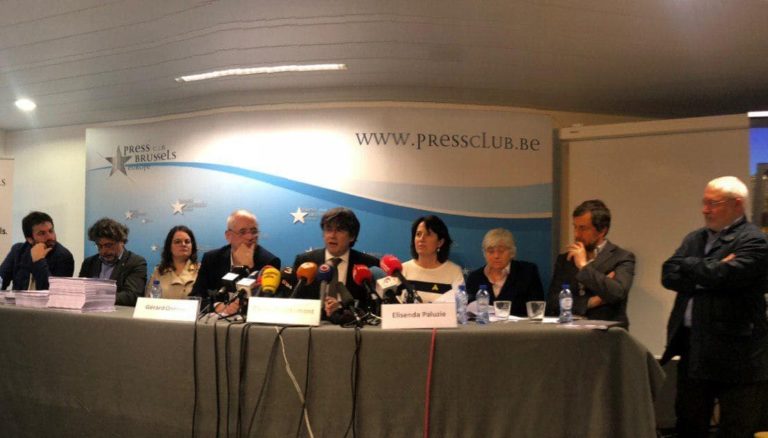
The General Court of the European Union announced yesterday the dismissal of the lawsuit over the European Citizens’ Initiative (ECI) promoted by Assemblea and the Council for the Catalan Republic. This initiative called the European Commission to investigate whether the Spanish state’s violations of the political and civil rights of the Catalan people met the conditions for the application of Article 7 of the Lisbon Treaty to Spain.
Last Wednesday morning, the General Court rejected at first instance the lawsuit on the European Citizens’ Initiative presented by the Catalan National Assembly and the Council for the Republic in September 2019. The lawsuit was filed after the European Commission rejected the initiative in July 2019. Assemblea and the Council then claimed that the Commission’s arguments for rejecting the Initiative did not conform to the legality of the European Union.
The European Citizens’ Initiative “EU Law, Minority Rights and Democratization of Spanish Institutions”, presented by Assemblea and the Council in May 2019, aims to call on the European Commission, by collecting one million signatures, to activate the monitoring mechanisms of systemic risks for the rule of law in the case of Spain, in the face of serious violations of fundamental rights against the Catalan people.
The Commission’s argument for rejecting the ECI and denying the signature collection was that, in their opinion, the requirements for admitting an Initiative of this nature were not met, as it considered that it does not correspond to the Commission to propose a legislative act. Assemblea and the Council consider that the Commission’s response does not comply with the legality of the European Union, and that this institution is attempting to hide behind a procedural excuse (failure to present a legislative action); the reason why it rejected the ECI is political, thus refusing to exercise its function of monitoring respect for the rule of law by the Spanish authorities. The function of monitoring the respect for the rule of law in the face of possible systemic threats by Member States is a competence of the European Commission, as a fundamental principle of the Union enshrined in Article 2 of the EU Treaty.
In fact, this Initiative aims precisely to show that these violations are not minor, but widespread, and have arisen as a result of a political process of emancipation in Catalonia, which have uncovered systemic risks and defects of the Spanish state that violate fundamental rights recognized in the European Convention of Human rights and enshrined in the Lisbon Treaty.
Assemblea and the Council mean to emphasize the Spanish state’s lack of respect for minority laws; the politicization and lack of counterweights in its high courts; the lack of respect for the direct application of the norms and guiding principles of the European Union; Spain’s abuse of various mechanisms for legal cooperation between member states; the violation of civil and political rights of minorities and their representatives; and the systematic violation of certain rights without which a society can hardly be described as fully democratic.
In view of the decision of the GCEU, Assemblea and the Council for the Republic reserve either the option of including the necessary modifications to the Initiative, to re-submit it for registration by the Commission, or the possibility of bringing an action before the higher court – the Court of Justice of the European Union – in order to get the Commission to accept the registration of the Initiative with its current wording, in order to call on it to investigate whether human rights violations by the Spanish authorities against the Catalan people against are a systemic threat to the rule of law.